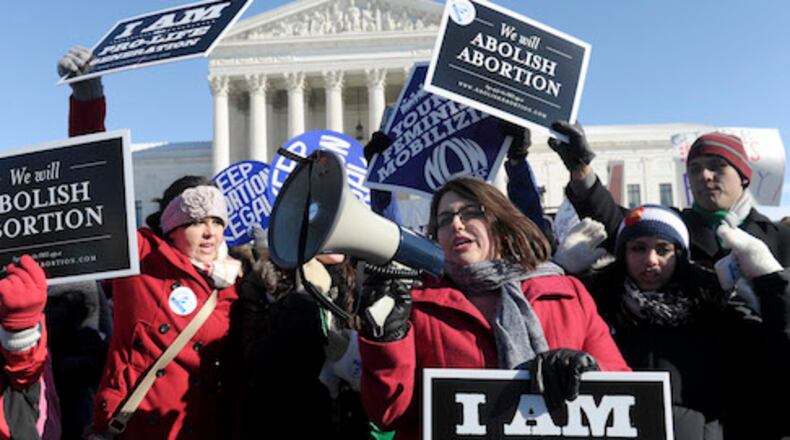The U.S. Supreme Court had one more little surprise for us, it seems, issuing an emergency decree this afternoon that temporarily blocks enforcement of an anti-abortion law passed by Texas.
Earlier this month, a three-judge panel for the Fifth Circuit Court of Appeals had unanimously upheld those provisions, which would force most abortion clinics in Texas to close. (Of the 41 clinics in operation when the law passed in 2013, fewer than a dozen would remain.) The law sets licensing and medical standards for abortion clinics that are so stringent that most clinics outside of major urban areas could not hope to meet them.
The emergency decree issued today -- and apparently opposed by Chief Justice John Roberts and justices Antonin Scalia, Samuel Alito and Clarence Thomas -- will stand until the court decides whether to accept the Texas case for its next term. If it does not accept the case, the temporary decree will end and the backdoor effort to ban abortion can be fully implemented.
Among other things, the law requires that doctors who perform abortion have admitting privileges at a local hospital -- often not possible in conservative areas -- and that clinics meet the standards of a full surgical clinic. Those provisions -- which doctors and medical experts say are unnecessary -- were justified as a means to improve patient safety, but everybody on both sides of the debate understood that as a fraud.
For example, it's unlikely that the celebrations by conservative politicians upon passage of the Texas law were inspired by joy that patient health had been improved. (And let's just say that Texas isn't big on government regulation in general). The bill was introduced by its sponsors as pro-life legislation, and upon passage of the bill Lt. Gov. David Dewhurst immediately tweeted out a map showing the vast sections of Texas in which abortion would no longer be available, bragging that "We fought to pass SB5 thru the Senate last night, & this is why!"
The Supreme Court is already considering whether to hear a similar case out of Mississippi that would force closure of that state's only clinic. If Mississippi and Texas win those cases, you can bet that we'll see very similar legislation here in Georgia next year.
About the Author
Keep Reading
The Latest
Featured



